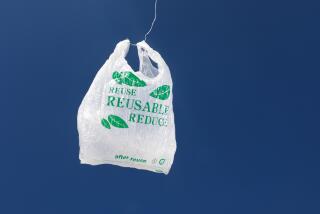State Wins MTBE Ruling
Environmentalists and state officials scored a major victory Tuesday when Methanex Corp. of Canada announced it had lost its $970-million trade case challenging California’s 1999 ban of the controversial gasoline additive MTBE.
The case was viewed as a crucial test of state governments’ ability to enforce health and environmental regulations that might conflict with international trade pacts.
It was the first time a foreign firm had used the North American Free Trade Agreement to challenge a U.S. environmental law.
The Methanex ruling represented a “resounding victory for the rights of Californians to keep their drinking water safe and clean,” California Atty. Gen. Bill Lockyer said.
California is one of more than a dozen states that have banned MTBE, or methyl tertiary-butyl ether, from fuel supplies. The additive, made from methanol, helps engines produce less pollution but has been blamed for contaminating groundwater supplies.
Vancouver-based Methanex, the world’s largest producer of methanol, argued that California’s ban was discriminatory. Under the Chapter 11 provision of NAFTA, countries are prohibited from discriminating against foreign investors.
After five years of legal wrangling, the three-person NAFTA tribunal dismissed Methanex’s claim on the grounds that it lacked jurisdiction. Methanex also was ordered to pay the U.S. government $4 million to cover legal costs. If the U.S. had lost the case, it would have been required to change the offending statute or pay a fine.
Diana Barkley, a Methanex spokeswoman, said Tuesday that the company was disappointed but couldn’t comment further until it reviewed the complex ruling.
Globalization critics have criticized the Chapter 11 process, saying it has been abused by foreign investors trying to undermine tough U.S. laws. But the U.S. government and corporations have pushed for such measures in trade pacts, arguing that they are necessary to protect investors in countries with weak laws.
More to Read
Inside the business of entertainment
The Wide Shot brings you news, analysis and insights on everything from streaming wars to production — and what it all means for the future.
You may occasionally receive promotional content from the Los Angeles Times.










